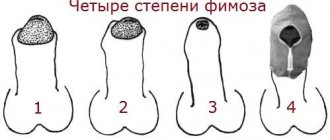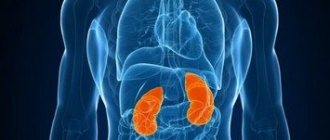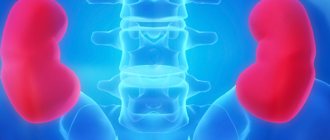Male andrologist - who is he, how does he differ from a urologist and sexologist? What does an andrologist treat? Until recently, a male doctor was considered exclusively a urologist, to whom men turned with signs of prostatitis, diseases of the genitourinary system and in order to improve erectile function.
A sexologist identifies and eliminates the causes of impotence and infertility in a man, and also solves various sexual disorders, both in the stronger and weaker sex, relying on knowledge in the field of psychology and psychiatry, urology, neurology and endocrinology.
A male andrologist treats reproductive and sexual dysfunctions exclusively in men.
A male andrologist deals with diseases such as decreased libido, sexual disorders, erectile dysfunction, cosmetic defects of the reproductive system and other male problems of an intimate nature.
In addition, an andrologist is a doctor who treats male infertility, congenital underdevelopment of the gonads, their radiation damage, and obesity. The Department of Andrology finds ways to solve the sexual, physiological and psychological aging of men, and solves problems associated with male contraception.
An andrologist is a doctor who helps a man cope with the physiological menopause, which usually occurs at the age of 50-55 years. This period gives a man extreme discomfort - the work of the endocrine glands decreases, the fertilization function atrophies, the hormonal levels undergo changes, and the man feels that he is aging.
An appointment with an andrologist will allow a man to cure pathological menopause caused by atherosclerosis, general disorders of the cardiovascular system, diabetes and hypertension. In this case, a consultation with an andrologist in Moscow will allow a man to overcome problems associated with the onset of premature menopause in middle age.
A good andrologist in Moscow first prescribes treatment for the underlying disease, and then age-related androgen replacement therapy in the form of long-acting hormonal drugs. These can be injections, patches, tablets, etc.
Urologist andrologist - what does he treat? He fights diseases that are part of the study of several disciplines simultaneously, namely:
- urology;
- endocrinology;
- sexopathology;
- microsurgery;
- plastic and vascular surgery;
- venereology;
- dermatology.
An experienced urologist andrologist (Moscow is rich in specialists in this area of medicine) is engaged in the diagnosis, treatment and prevention of diseases of the male reproductive system.
Male urological diseases
Pathologies of the genitourinary system in men can be divided into:
- developmental anomalies (phimosis, cryptorchidism, confluence of the seminal ducts into the bladder),
- injuries (bruises, crushing injuries, burns, frostbite, radiation damage),
- functional disorders (erectile dysfunction, infertility),
- infectious and inflammatory pathologies (specific, i.e. venereal, and nonspecific),
- dystrophy,
- benign and malignant neoplasms (prostate adenoma, bladder, testicular, prostate cancer)
Depending on the affected organ, there are:
- 1. inflammation of the urethra (urethritis),
- 2. lesions of the testicle (orchitis, varicocele) and its epididymis (epididymitis),
- 3. prostate pathologies (prostatitis, adenoma, cancer),
- 4. pathologies of the penis (trauma, curvature, phimosis, paraphimosis, balanitis, posthitis),
- 5. cystitis (inflammation of the bladder),
- 6. kidney damage (pyelonephritis, glomerulonephritis, amyloidosis, tuberculosis, sarcoidosis, urolithiasis).
Thus, urological diseases are not only diseases of manhood, but also pathologies of other urinary and reproductive organs.
Which doctor treats prostatitis?
Inflammation of the prostate gland is a serious and dangerous disease.
There are many reasons for its occurrence: a disorder of the blood supply in the pelvis, infection, a sedentary lifestyle, traumatic lesions in the prostate area.
Manifestations of the disease are very unpleasant for men; they are embarrassed to go to the doctor with such symptoms.
Unpleasant sensations develop when trying to urinate, pain in the rectum, and when straining.
Erectile dysfunction often occurs.
Young men turn to the doctor if they are unable to have sexual intercourse or have problems with erection.
With the development of prostatitis in old age, the problem of incontinence comes to the fore.
The doctor who treats prostatitis is a urologist.
He collects anamnesis, conducts an examination, and uses special techniques.
The doctor prescribes additional tests: laboratory and instrumental.
Based on the results of the diagnostics, he makes a diagnosis and prescribes competent therapy.
When persistent dysfunction develops, an andrologist is involved in the treatment.
Who treats renal colic?
Urolithiasis (urolithiasis) is a common problem among the working population.
It occurs equally in both sexes.
The disease brings discomfort, unpleasant, painful sensations when urinating.
A possible manifestation is precisely “colic.”
Symptoms occur when a stone moves through the ureters and becomes blocked.
The walls are quite narrow and even a small pebble can cause pain.
In this case, very severe pain occurs, which is relieved with medications.
In some cases, a warm bath and antispasmodics help.
Upon examination, blood is found in the urine.
As a rule, patients call an ambulance and are hospitalized in a urological hospital.
A urologist treats this disease.
The doctor will determine what the patient needs - drug therapy or surgery.
In case of an acute attack, he will quickly prescribe therapy.
Further observation by a urologist for this disease is mandatory.
Urolithiasis occurs in the fair sex no less often than in men; this pathology should be treated by a urologist.
How does an appointment with a doctor work?
An appointment with an andrologist and urologist in case of suspected genital disease will proceed as follows:
- Patient consultation begins with a survey. The doctor asks pressing questions and clarifies the patient’s complaints. It is very important not to be shy and answer as detailed and truthfully as possible.
- Examination of the male genital organ. An andrologist or urologist examines the penis, diagnoses the presence of discharge and disturbances in normal appearance
- If infertility is suspected, information about the sexual partner is also required
After this, a diagnosis is made, and the male gynecologist prescribes drug or surgical treatment with further monitoring of the patient.
Male venereal diseases
The list of sexually transmitted diseases traditionally approaches ten.
This:
- 1. gonorrhea,
- 2. syphilis,
- 3. chlamydia,
- 4. trichomoniasis,
- 5. ureaplasmosis,
- 6. mycoplasmosis,
- 7. candidiasis,
- 8. genital herpes,
- 9. genital warts (human papillomavirus types 6 and 11),
- 10. chancroid.
The main symptom of these pathologies is specific inflammation.
It manifests itself:
- urethritis,
- orchitis,
- epididymitis,
- balanoposthitis,
- prostatitis,
- less often – cystitis.
These pathologies require immediate response and a visit to the doctor.
Since their neglected forms threaten with severe complications, potency disorders and infertility.
In addition, sexually transmitted diseases pose a threat to people close to you, and often to those around you.
Specialization of doctors
Most often, men turn to a urologist with their intimate problems. Although he cannot be called an exclusively male doctor, because representatives of the fair sex can also turn to him. A urologist specializes in diseases of the urinary tract and reproductive system. Women turn to him most often with kidney ailments and a problematic bladder, and for other intimate issues they go to a gynecologist. But since in men the urinary and reproductive systems are closely connected, a urologist deals with both. This doctor is responsible for both systems of the male body.
An andrologist is already considered a more specialized specialist, because he treats exclusively men. This specialty appeared relatively recently. Andrologists treat a huge range of diseases and serve as a urologist, sexologist, endocrinologist, urologist and even a psychologist for men. It is these doctors that both very young boys and older men go to for treatment. The andrologist simultaneously specializes in the following medical fields:
- Neurology
- Venereology
- Sexology
- Urology
Doctor for men's diseases
Venereologist: what does it treat?
A venereologist treats infections transmitted during sex.
This problem has become especially common in recent decades.
You should contact a venereologist if you have:
- 1. Copious discharge from the urethra or vagina, outside of sexual intercourse;
- 2. The discharge has an unpleasant odor and is purulent in nature;
- 3. New growths, ulcers, skin growths have appeared;
- 4. You are bothered by pain during sex.
Important! If you have had sex without a condom with a stranger, contact a venereologist immediately.
Most infections can be successfully treated if treated promptly.
When the process is delayed, the results can be disastrous.
Infectious complications and strictures develop.
The danger is phimosis and balanitis.
Tissue necrosis may develop, which will require surgical manipulation.
Sepsis and death are possible.
Do not allow complications to develop, consult a doctor on time.
Andrologist: who is he and what diseases does he treat?
Andrologist specialist in male diseases.
The doctor deals exclusively with the male reproductive system.
Can treat adults or children.
An andrologist treats the following diseases:
- Erectile dysfunction;
- Changes in the balance of sex hormones;
- Prostate diseases;
- Congenital developmental disorders of the genital organs;
- Inflammatory pathologies of the scrotum – orchitis, epididymitis;
- Balanitis and balanoposthitis.
Remember! The reason to consult an andrologist is infertility.
In the modern world this problem is relevant.
Reproductive function is influenced by many factors.
Lifestyle, nutrition, and environmental degradation should be taken into account.
Make an appointment with an andrologist if, after regular sexual activity for 6–12 months, your partner does not become pregnant.
A marriage is said to be infertile if planning does not lead to the desired result within a year.
The doctor will be able to find out the cause and correct the situation.
What does a urologist treat?
A doctor of urology is the most popular specialist among the male population.
If any problems arise in the male part, the first thing to do is visit this doctor.
A urologist examines and treats the following pathologies:
- Diseases of the urinary system that are associated with metabolic disorders;
- Benign formations of the prostate gland;
- Neoplasms of the kidneys, urethral tract, bladder;
- Cystitis.
Important! Previous treatment of urinary tract tumors requires regular monitoring by a urologist.
If problems with potency, developmental anomalies or dysfunction of the reproductive system are identified, the urologist refers to a specialist: an andrologist.
If a sexually transmitted disease is diagnosed, the doctor may refer you to a venereologist.
Like all specialized specialists, urologists are divided into adult and pediatric.
Some doctors treat patients of all ages.
When making an appointment with a doctor, it is worth checking what age patients he accepts.
Pediatric urologist: when to contact him?
Unfortunately, problems with the genitourinary system occur not only in adults.
Dirt, poor or lack of hygiene, improper washing, all this leads to illness.
The children's genitourinary system should be carefully monitored and if problems arise, consult a doctor.
Contact a pediatric urologist if your child has the following complaints:
- 1. Severe redness in the area of the urethral canal, painful urination;
- 2. Discharge from the urethra;
- 3. Pain in the lower back and lower abdomen;
- 4. Presence of blood in the urine.
If you notice swelling under your child’s eyes in the morning, this is a reason to get examined.
Important! Do not delay your visit to a pediatric urologist to avoid complications.
A referral to a pediatric urologist is issued by a pediatrician.
A surgeon in a clinic can also provide emergency care.
In order not to waste time, contact a pediatric urologist at our clinic.
This will help solve the problem quickly.
An andrologist for a child: when is he needed?
A urologist can refer the boy to a pediatric andrologist.
Consultation with this specialist is necessary for a child with developmental defects of the genital organs.
The most common reason for visiting an andrologist in children is abnormalities in the location of the testicles.
Remember! Normally, the testicles should be located in the scrotum at the time of birth.
In some cases, they are not lowered in a timely manner.
The reasons may be:
- 1. Anorchism – complete absence of both testicles in the body;
- 2. Monorchidism – absence of one testicle in the body;
- 3. Cryptorchidism is a non-descent of the testicle from the abdominal cavity or inguinal canal; it can be unilateral or bilateral.
A child with this defect is usually observed for three months.
During this period, spontaneous descent of the testicles is possible.
Important! To prevent the boy from encountering the problem of infertility in the future, contact an andrologist in a timely manner.
Treatment can be medication or surgery.
When is a venereologist needed for a child?
Some types of infections that are contracted during sex can be passed from mother to child.
This mechanism of infection occurs during childbirth.
Children who are born naturally are at risk of infection from a sick mother.
If a child is infected with a sexually transmitted infection, this is a reason to visit a doctor.
The symptoms are as follows:
- The appearance of discharge from the genital organs;
- Pain when urinating;
- Pain in the pelvic area.
The discharge can be of various types: purulent, mixed with blood, with an unpleasant odor.
Suspicion may be caused by clear, abundant discharge, combined with pain.
Important! If a questionable situation arises, you should consult a doctor.
Delay threatens complications.
Scope of activity of an andrologist
The closest person to the definition of a male gynecologist is a doctor of andrological specialty. His practice includes the following types of pathologies:
- all types of male infertility;
- genetic diseases of the genital organs;
- pathological processes in the prostate gland;
- decrease or absence of erectile function of any origin;
- genital injuries;
- childhood and adolescent diseases of the penis, in particular phimosis and paraphimosis;
- inflammatory diseases of the reproductive system, in particular venereal pathologies.
For men, an andrologist is a highly specialized specialist. You should contact him if there are signs of an infertile marriage, erectile dysfunction and sexual intercourse, pain in the penis and changes in appearance. It is also recommended to consult the male equivalent of a gynecologist for children with a lack of secondary sexual characteristics and an effeminate appearance. As a rule, genetic diseases are detected at an early age, but some of them manifest themselves only during puberty.
Doctor for men's diseases, urologist for the elderly
Urologists are general specialists.
They deal with surgical and therapeutic treatment of the urinary tract.
Absolutely everyone can turn to them: children, adults and the elderly.
Doctors of this profile deal with problems associated with hormonal changes in the male body.
In men, this period can begin at any age; if in old men this is the norm, then in young men it is a pathology.
Elderly people tend to have the problem of urinary incontinence; if this condition occurs, you should consult a doctor.
In men, the pathology is associated with prostate diseases, in women with weakening of the pelvic floor muscles.
Any older person who experiences urinary incontinence should consult a urologist.
This is the doctor who can provide surgical or medicinal assistance.
Often, older people develop neoplasms of the genitourinary organs; these diseases are also addressed to a urologist.
A surgical specialist will be able to perform an operation, send the material for histology and prescribe competent treatment.
Is it possible to get a consultation with a venereologist, urologist, and andrologist in Moscow for free? Yes it is possible.
Subspecialty specialists, for example a pediatric andrologist, provide consultations in diagnostic centers at clinics.
They are in all districts of Moscow.
Each such center has several district clinics attached to it.
Making an appointment can be very difficult.
Often patients cannot get an appointment for weeks.
As a result, precious time is lost and the disease progresses.
Complications may develop: adhesions form and the disease becomes chronic.
The solution in such a situation would be to contact a paid clinic. It's fast and convenient.
Our specialists apply the rule of an individual approach to each patient.
The fact of contacting our clinic will remain a medical secret.
How much does a consultation with a venereologist, urologist and andrologist cost in Moscow?
On average, a consultation with a venereologist in Moscow costs 1,500 - 3,000 rubles.
The average price for a consultation with a urologist in Moscow is 1600 -3200 rubles.
The average price for a consultation with an andrologist in Moscow is 1,700 - 5,000 rubles.
The best prices in our clinic.
An initial consultation with a specialized specialist costs 900 rubles.
There are specific appointment times: seeing a doctor can be even cheaper.
The clinic has its own laboratory.
Scope of activity of a urologist
The urinary tract is treated by a gynecologist in women, and by a urologist in men. This specialist, unlike an andrologist, deals with problems not only of the male, but also of the female urinary system. Patients can contact this specialist if they have the following problems:
- signs of sexually transmitted infections (discharge from the urethra, subjective complaints, symptoms of inflammation, and so on);
- inflammatory processes at any stage of the urinary tract (for example, thrush, that is, vaginal candidiasis, can also bother men, localized on the head of the penis);
- pyelonephritis and glomerulonephritis;
- inflammatory processes in the bladder;
- traumatic injuries of the urinary tract;
- urolithiasis.
A urologist deals not only with therapeutic but also surgical activities for men
. An exclusively conservative nephrology doctor practices next to him, who treats the listed pathologies without surgical intervention. The name of the doctor who deals with kidney transplantation issues is highlighted separately - transplantologist.
There are also specially trained doctors who deal with hemodialysis for patients with decompensated renal failure.
Men should understand doctors who replace female gynecologists in order to know where to go if any problems with the genitourinary system arise. Most often, the initial point of contact should be a therapist who, after a preliminary examination, will refer the patient to the right doctor.
Not all men know which specialist to entrust their intimate health to. Many people ask the question: is there a “gynecologist” for men?
Ignorance of this issue leads to the fact that representatives of the stronger half of humanity postpone visiting a specialist, and in the meantime the symptoms increase and the disease enters the stage of neglect. Diseases of the genitourinary system should not be treated indifferently, as well as problems of a sexual nature.
What symptoms should you contact a venereologist for?
If you notice at least one manifestation, immediately go to the doctor:
- burning and itching observed in the genitals,
- enlarged lymph nodes,
- discharge of various types, often with an unpleasant odor,
- the presence of spots on the skin or mucous membranes,
- painful sensations when urinating,
- the appearance of ulcers or blisters,
- pain or discomfort during sexual intercourse.
The fact is that many often do not pay attention to minor manifestations of symptoms in the initial period of the disease and often come to us with a complicated form of STD.










